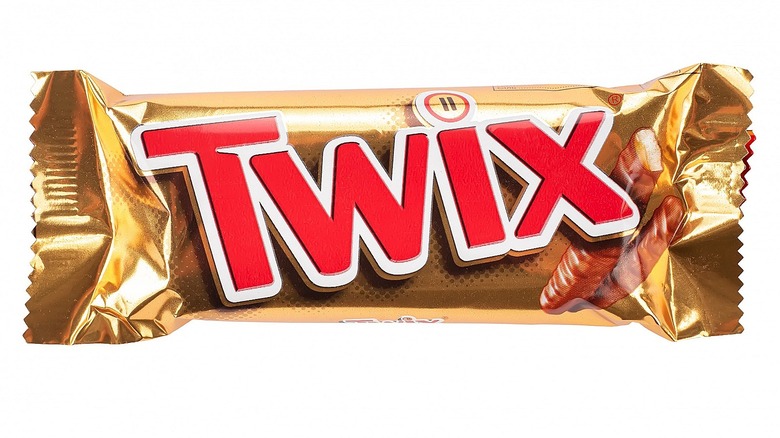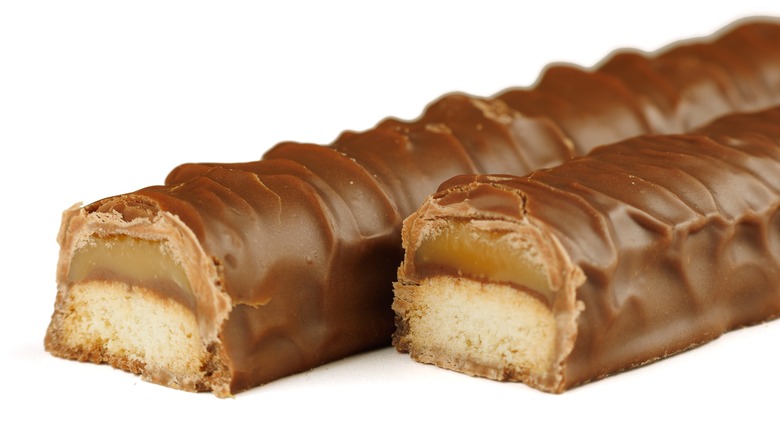The Reason Twix Became So Controversial In Germany
Germans have a knack for deducing complex ideas into single words, from "Schadenfreude" (the feeling of malicious joy at someone else's misfortune) to "Torschlusspanik" ("gate-shut-panic," or the fear that time is slipping away). Likewise, if you ever find yourself presenting to a room of German businesspeople and you need a word to describe a product that you feel has lazily slapped a new label on an existing idea, no one will bat an eye when you call it a "twix."
But why don't Germans use "twix" to describe something as cheerful as its chocolate-covered namesake, like the feeling of finding a treat in the pocket of one's coat? According to History of Things, the Twix (a buttery cookie wrapped in a thick layer of caramel and covered in milk chocolate) has a more contentious history than you might think.
Created in 1967 by the UK company Mars Limited (which is now known as Mars Wrigley and also puts out popular candies like Mars Bars, Starburst, and Skittles), the name "Twix" didn't actually come about until 1979, when the candy bar was first released in the United States as the Twix Cookie Bar and was photographed in its shiny, gold-packaged glory. But for the decade-plus that Germans (and other candy lovers in Western Europe) had been eating the stuff, they called it something else: Raider. All was well until 1991, when Twix's US branding made its way across the pond.
New name, same chocolate
"Raider heißt jetzt Twix ... sonst ändert sich nix," declared an ad campaign announcing the global rebranding. It translates to "Raider is now Twix, nothing else changes." No extra chocolate, no extra caramel, no new-and-improved biscuit recipe — just a different name that, according to Mental Floss, may or may not be a portmanteau of "twin" and "stix." Germans weren't having it. "Public reaction saw the change as a cynical attempt to revive sales of an old product by rebranding it," History of Things writes, "so much so that the name Twix has become synonymous with cynical rebranding in both politics and the corporate world in Germany."
This wouldn't be the first time Mars would do a switcheroo on the name of one of its products to suit its American market. In 1998, Opal Fruits were rebranded as Starburst, which was met with disappointment from the candy's fans in the UK. But, unlike Raider bars, those with a special place in their heart for the fruity candy's original incarnation were treated to a limited-edition revival of the retro packaging on British supermarket shelves last year.
Who knows — maybe Mars Wrigley will make amends with its German consumers by dropping the old Raider logo on a couple hundred cases of Twix. It's the same candy inside, after all.

